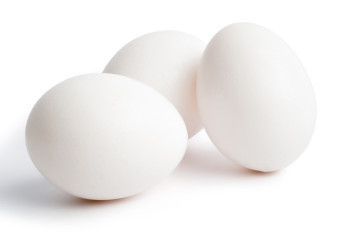 Do you eat ‘em? Not so long ago, we were told to limit our intake. Too much cholesterol, they said! Not healthy, they said! But now, recent studies are showing that the cholesterol in eggs isn’t all bad.
Do you eat ‘em? Not so long ago, we were told to limit our intake. Too much cholesterol, they said! Not healthy, they said! But now, recent studies are showing that the cholesterol in eggs isn’t all bad.
Take a look at this article. Interesting, huh? Clearly, you should eat eggs in moderation, just like you do any other food. Three for breakfast, three for lunch, and three for dinner might not be so good. But one or two a day? That may be okay.
I’ve always loved eggs. I regularly have an egg for breakfast, if not every day, then several times a week. Sometimes I fry it, with oil spray on the skillet. Other times I boil it midway between soft and hard. I don’t poach my eggs – too messy – but I recently had breakfast at a place that did fabulous poached eggs. There are also scrambled eggs, of course. I’ll do this on the weekend; my kids love eggs scrambled with cheese. Toss in whatever leftover veggies are in the fridge, and it’s a meal.
What’s so good about eggs? The best thing for me has less to do with healthy than with staying filled. When I feel empty at ten in the morning and start reaching for food, it doesn’t bode well, diet-wise, for the rest of the day. One egg for breakfast holds me far longer than, say, cold cereal or a muffin.
What else? Well, one egg has a solid 6g of protein, a small 62 mg of sodium, and negligible sugar. All this for 78 calories? Not. Bad.
Another really good thing is that an egg can be eaten for breakfast, lunch, or even dinner. I recently had a totally delicious warm asparagus salad with a fried egg on top for lunch at the Cheesecake Factory, and while not too many restaurants serve eggs for dinner, my personal kitchen does.
What about you? If you eat eggs, how do you like them? I keep a hard-boiled egg or two in my fridge to have on lettuce in a pinch for lunch. Any other ideas?
Scary, our being told so vociferously that eggs were bad for us. It makes you wonder whether five years from now, we’ll be told that some currently highly-recommended food, eaten long term, has a terrifying downside. I suppose that’s the value of ongoing research. Better late than never, eh?
 newest »
newest »
 newest »
newest »
 I eat eggs...whole eggs! I've started eating like I used to do when I was younger and I feel much better. I'm a diabetic and I'm careful not to over indulge.
I eat eggs...whole eggs! I've started eating like I used to do when I was younger and I feel much better. I'm a diabetic and I'm careful not to over indulge.

 Do you eat ‘em? Not so long ago, we were told to limit our intake. Too much cholesterol, they said! Not healthy, they said! But now, recent studies are showing that the cholesterol in eggs isn’t all bad.
Do you eat ‘em? Not so long ago, we were told to limit our intake. Too much cholesterol, they said! Not healthy, they said! But now, recent studies are showing that the cholesterol in eggs isn’t all bad.

